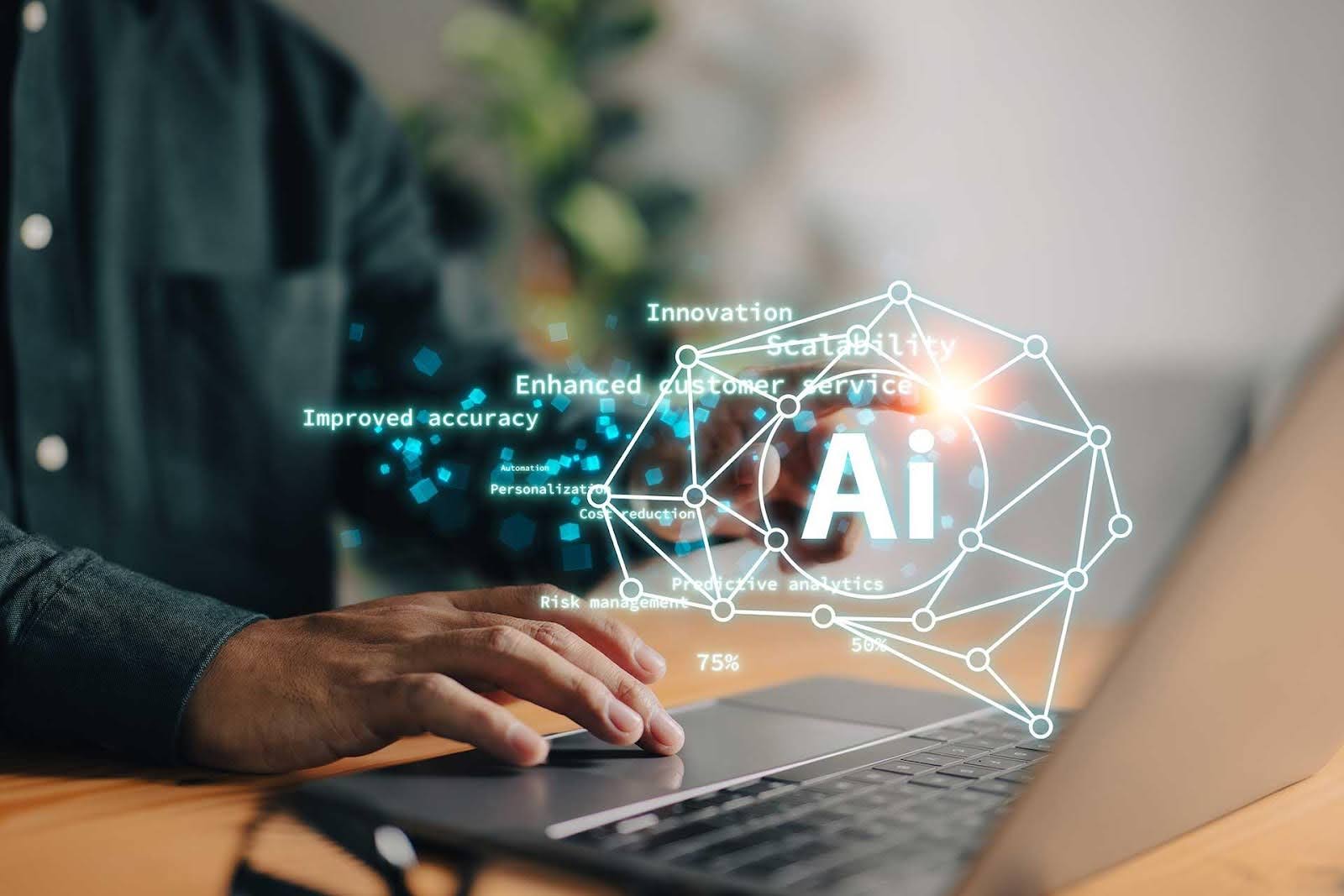Technology has always been the driving force of human progress. From the invention of the wheel to the rise of the internet, each leap has reshaped how societies live, work, and interact. Today, we are standing at the edge of another technological revolution, one that promises to blur the lines between the physical, digital, and biological worlds. As businesses, governments, and individuals adapt to these rapid shifts, the future of technology will define the future of humanity itself.
This article explores the most influential trends shaping the next decade of tech, their opportunities, and the challenges they bring.
Artificial Intelligence and Machine Learning
Artificial Intelligence (AI) is no longer a futuristic concept—it is already embedded in daily life. From digital assistants like Siri and Alexa to recommendation engines on Netflix and Amazon, AI quietly powers much of the digital ecosystem. In the next decade, AI will become even more pervasive and sophisticated.
Businesses are investing heavily in AI to improve efficiency, enhance customer experiences, and reduce costs. Healthcare is using AI for diagnostics, while finance leverages it for fraud detection. Autonomous vehicles, powered by AI, promise to transform transportation.
Yet, this growth brings challenges. Questions about ethics, bias in algorithms, and the impact on jobs remain unresolved. Striking the right balance between innovation and responsibility will be essential as AI continues to evolve.
The Expansion of 5G and Beyond
5G is more than just faster internet—it is the foundation for an entirely new digital economy. With ultra-low latency and high bandwidth, 5G enables technologies such as autonomous driving, smart cities, and advanced robotics.
Businesses will benefit from seamless remote operations, enhanced Internet of Things (IoT) connectivity, and new revenue streams. Consumers will see richer experiences in gaming, augmented reality (AR), and virtual reality (VR).
Looking further, discussions about 6G are already beginning. Expected to roll out in the 2030s, 6G could provide unprecedented connectivity, potentially merging physical and virtual realities in real-time.

The Rise of the Metaverse
The concept of the metaverse—an immersive, shared digital universe—has gained significant attention in recent years. Tech giants like Meta (formerly Facebook), Microsoft, and Nvidia are investing billions into building platforms that merge AR, VR, and digital economies.
In the metaverse, users can socialize, work, shop, and play in virtual spaces. Businesses see opportunities to create digital storefronts, virtual events, and entirely new marketplaces. Education and training programs are also experimenting with VR-based classrooms that simulate real-world environments.
However, the metaverse faces hurdles: accessibility, high hardware costs, data privacy, and the need for interoperability between platforms. Whether it becomes the next iteration of the internet or just a niche technology depends on how these challenges are addressed.
Quantum Computing
Quantum computing promises to revolutionize problem-solving in ways that classical computers cannot match. By leveraging quantum mechanics, these machines can perform calculations at speeds unimaginable today.
Sectors such as pharmaceuticals, logistics, cybersecurity, and finance stand to benefit most. For example, quantum computing could accelerate drug discovery, optimize global supply chains, and break traditional encryption methods.
While the technology is still in its early stages, major companies like IBM, Google, and startups around the world are making rapid progress. Over the next decade, quantum computing may move from theoretical experiments to practical applications, reshaping industries in the process.
Cybersecurity in a Hyperconnected World
As technology advances, so do cyber threats. With billions of devices connected through IoT and 5G, cybersecurity has become one of the most pressing challenges. Data breaches, ransomware attacks, and identity theft are growing in frequency and sophistication.
Businesses are now investing heavily in advanced security measures, including AI-driven threat detection, zero-trust architectures, and blockchain-based solutions. Governments are also implementing stricter regulations on data privacy, such as the European Union’s GDPR.
Cybersecurity will not only be a defensive measure but also a competitive advantage. Companies that can guarantee data protection will earn greater trust from consumers and partners alike.
Green Technology and Sustainability
Sustainability is no longer optional—it is a necessity. As climate change accelerates, the tech industry is under increasing pressure to reduce its carbon footprint. Green technology, or “cleantech,” is emerging as a critical area of innovation.
Renewable energy solutions, energy-efficient data centers, and sustainable manufacturing processes are becoming standard practices. Electric vehicles (EVs) are another prime example of how technology and sustainability intersect. Tesla, Rivian, and traditional automakers are racing to capture the EV market, while advancements in battery technology are making clean energy storage more feasible.
The next decade will likely see businesses embedding sustainability into every layer of their tech strategies, not just as corporate responsibility but as a driver of innovation and competitiveness.
Biotechnology and Human Enhancement
The convergence of technology and biology is opening doors to a new frontier: biotechnology. Advances in gene editing tools like CRISPR are allowing scientists to edit DNA with precision, potentially curing genetic diseases.
Wearable devices are evolving into bio-integrated sensors that can monitor health in real time. Brain-computer interfaces, such as those developed by Neuralink, may eventually enable direct communication between the brain and machines.
These innovations raise profound ethical questions. Where should society draw the line between medical necessity and human enhancement? As biotech becomes mainstream, debates about ethics, privacy, and accessibility will intensify.
Remote Work and the Digital Workplace
The COVID-19 pandemic accelerated a trend that was already underway: the rise of remote work. Technology enabled millions of people to continue working, studying, and collaborating virtually. Video conferencing, cloud computing, and project management tools have redefined the workplace.
Even as physical offices reopen, hybrid work models are here to stay. Businesses are adopting flexible systems that allow employees to work both in-person and remotely. This shift is driving innovation in collaboration tools, cybersecurity, and workplace culture.
The digital workplace also raises new challenges, such as employee burnout, blurred work-life boundaries, and the need for equitable access to digital resources. Companies that navigate these challenges effectively will attract top talent in the coming years.
The Democratization of Technology
Another significant trend is the democratization of technology. Low-code and no-code platforms allow individuals without technical expertise to build apps, websites, and digital solutions. Cloud computing gives small businesses access to tools that were once exclusive to large corporations.
This democratization lowers barriers to entry and fuels innovation across industries. It empowers entrepreneurs, educators, and creators to bring ideas to life faster and cheaper than ever before.
However, it also raises concerns about security and quality. As more people build digital solutions, ensuring that these creations are safe and reliable becomes increasingly important.

Conclusion
The future of technology is both exciting and complex. Artificial intelligence, quantum computing, the metaverse, and biotechnology hold the potential to transform nearly every aspect of human life. At the same time, challenges such as cybersecurity, ethical dilemmas, and sustainability must be carefully managed.
Technology is not just about tools or devices—it is about shaping societies and economies. The decisions we make today about how to develop, regulate, and adopt technology will define the world we live in tomorrow.
The next decade will demand not only innovation but also responsibility. If guided wisely, technology can drive progress toward a more connected, sustainable, and equitable world.

